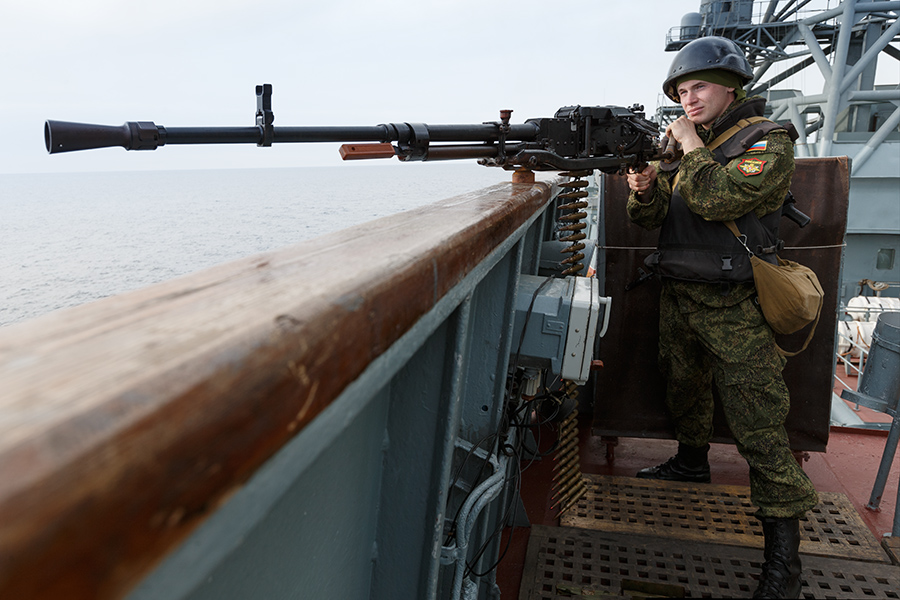An international investigation has uncovered a concerning pattern of Russian espionage in the Baltic and North Sea. It has been discovered that Russian research vessels, often carrying armed military personnel, are regularly monitoring critical infrastructure in European waters. This includes gas pipelines, data cables, wind farms, and military installations.
This systematic surveillance poses a significant threat to Europe‘s security landscape. Not only does it challenge immediate defense capabilities, but it also jeopardizes long-term energy security and economic stability. According to a report by Dutch research platform Pointer, in collaboration with journalists from six European countries, the team analyzed data from 72 ships and found that they frequently exhibit suspicious behavior within the exclusive economic zones of various European nations. This includes sailing at extremely slow speeds, following erratic patterns, or coming to a complete stop near sensitive areas.
While these vessels are officially designated for research or rescue operations, it appears that they serve a dual purpose. They engage in military reconnaissance and potentially prepare for sabotage activities. This has raised concerns among NATO officials, who view it as part of a broader pattern of threats against Western countries. The presence of Russian Spetsnaz units, known for their expertise in reconnaissance and sabotage, on some of these vessels further heightens these concerns.
James Appatharui, Assistant Secretary-General at NATO, has expressed growing concern about this trend, stating that Russia is “mapping all of our critical infrastructure with very sophisticated equipment, with the goal of sabotaging it.” He also noted an increase in threats against European countries in the past six months, including sabotage, political interference, disinformation, cyber attacks, forced migration, and attacks on critical submarine infrastructure. Appathurai believes that these are all part of a larger pattern that must be defended against. While NATO is taking action, they are not yet adequately prepared.
A former crew member of the research ship Sibiryakov revealed that Russia views critical infrastructure from a strategic point of view. In the event of war, destroying submarine pipelines would give them an advantage. Therefore, the primary function of these research ships is to scan the seabed and provide information to the military.
Despite the apparent threat, current maritime law allows these ships to operate freely in international waters, leaving European navies with limited options beyond shadowing the vessels. Some European politicians are calling for more assertive responses to these intrusions, stating that merely observing is insufficient. They advocate for actively hindering or stopping these vessels from conducting their surveillance activities.
Read More @ euromaidanpress.com













